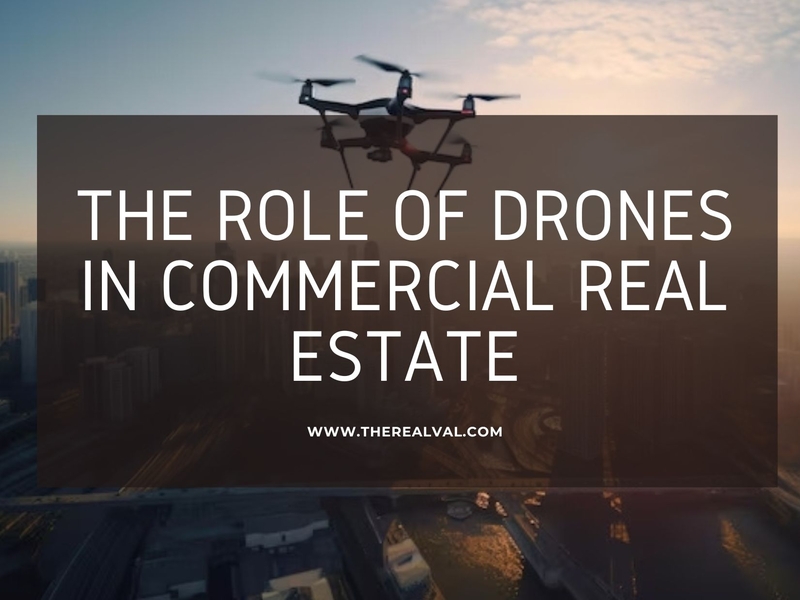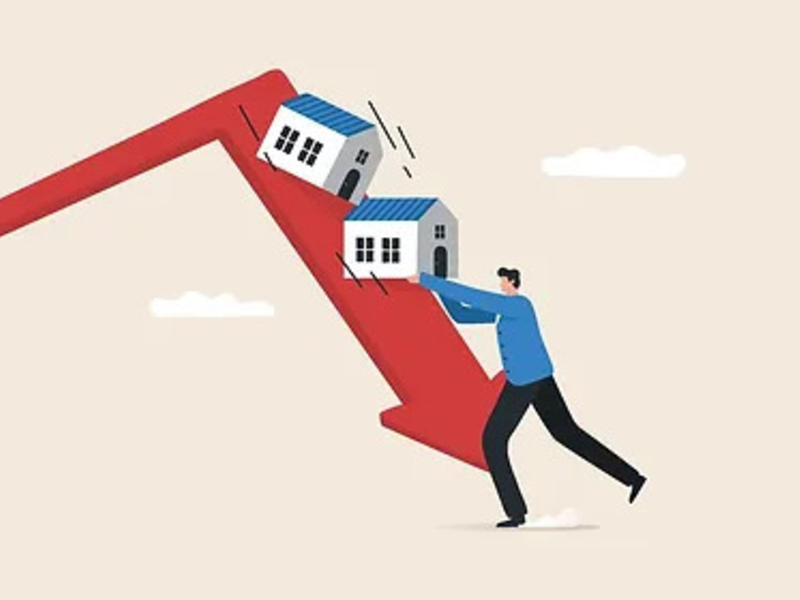Drone technology has revolutionized the commercial real estate industry, redefining how properties are marketed, inspected, and managed. Equipped with high-resolution cameras and advanced sensors, drones, also known as unmanned aerial vehicles (UAVs), offer unparalleled efficiency and precision in data collection. This article delves into the diverse applications of drones in CRE, their benefits, and their immense future potential.
Key Applications of Drones in Commercial Real Estate-
- Property Inspections: Drones streamline property inspections by providing detailed aerial views of buildings and land. They can easily access hard-to-reach areas like rooftops and facades, enabling comprehensive assessments without scaffolding or ladders. By capturing high-resolution images from multiple angles, drones can effectively identify structural weaknesses, cracks, and other signs of deterioration, enabling timely interventions. This approach accelerates the inspection process, reduces labor costs, and minimizes safety risks.
- Marketing and Sales: Drones elevate property marketing with stunning aerial photography and videos, showcasing properties from unique perspectives. Listings featuring drone footage sell up to 68% faster than those without. Virtual tours created with drone technology further expand marketing reach, allowing prospective buyers or tenants to explore properties remotely. This immersive experience captivates potential buyers and tenants, often resulting in quicker leasing and sales transactions.
- Construction and Development Monitoring: Drones are vital in construction projects, providing insights at every stage. They enable precise site mapping to identify challenges and optimize planning. Regular aerial imaging tracks progress, ensures timelines are met, and highlights delays. Additionally, drones enhance safety by identifying hazards like equipment issues or unsafe conditions, reducing accident risks.
- Geospatial Analysis: Equipped with LiDAR (Light Detection and Ranging) technology, drones enable accurate geospatial analysis and topographic mapping. This capability is especially valuable in complex terrains, where traditional surveying methods are costly or inefficient.
- Property Management: Drones aid property managers by monitoring maintenance needs and security issues across expansive properties. Their timely updates help address concerns before they escalate into expensive repairs, ensuring proactive management. Drones are highly effective in managing large properties like industrial complexes or warehouses.
Benefits of Drones in CRE-
- Enhanced Efficiency: Drones complete tasks like inspections and surveys significantly faster than traditional methods, boosting productivity.
- Cost Savings: By minimizing labor and equipment costs, such as scaffolding or helicopter rentals, drones reduce operational expenses.
- Superior Data Quality: High-resolution images captured by drones provide precise property assessments, aiding in accurate valuations and decision-making.
- Improved Safety: Drones eliminate the need for personnel to access hazardous areas, reducing workplace accidents.
Challenges and Considerations-
Despite their numerous advantages, drones in commercial real estate face several challenges that require careful attention:
- Regulations: Drone usage is governed by strict regulations, including airspace restrictions, licensing protocols, and operational guidelines. Navigating these legal requirements can be complex and varies across regions.
- Privacy Concerns: Ensuring responsible drone usage is critical to safeguarding the privacy of individuals and businesses. Unauthorized data collection or surveillance can lead to legal and ethical issues.
- Technical Limitations: Drones are subject to constraints like adverse weather conditions, limited battery life, and payload capacity, which can affect their efficiency and usability in certain scenarios.
The Future of Drones in CRE
The potential of drones in commercial real estate continues to grow as technology advances. Autonomous drones capable of operating without human intervention are on the horizon, paving the way for applications like disaster response and environmental monitoring. Additionally, the integration of AI with drone-collected data promises more sophisticated analytics, empowering real estate professionals to make informed, data-driven decisions.
Drones are transforming the commercial real estate sector by enhancing efficiency, reducing costs, and improving safety. As adoption rises and innovations like AI integration emerge, drones are poised to play an even more pivotal role in CRE operations, marketing, and management. This ongoing technological evolution will unlock new opportunities, shaping the future of the industry in groundbreaking ways.
Trending





